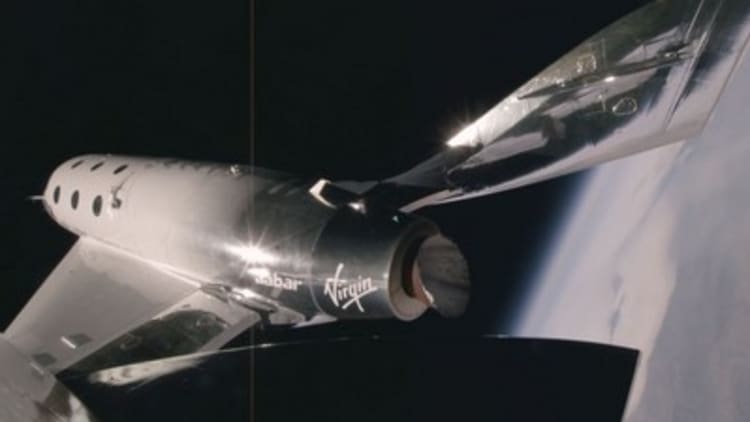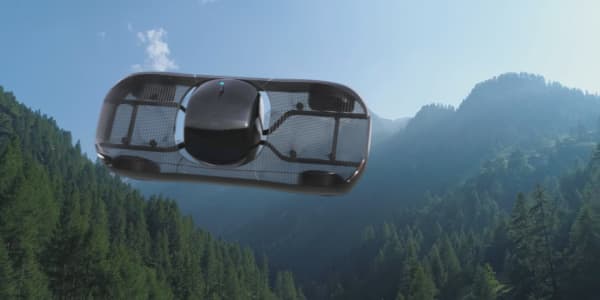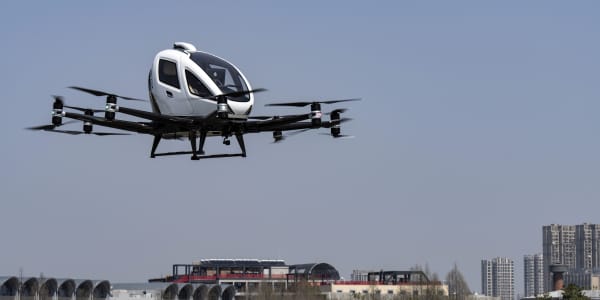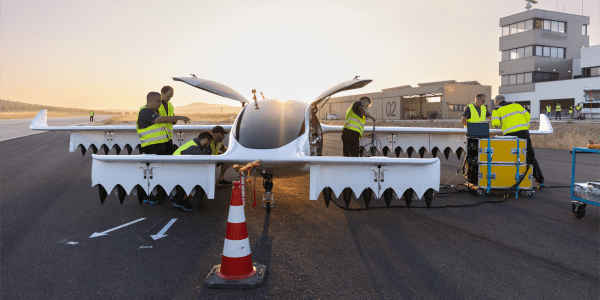
Virgin Galactic succeeded in the third rocket-powered flight of its Unity spacecraft on Thursday, in a test which pushed the vehicle faster and higher than ever before.
Billionaire Richard Branson's space company is one test flight closer to taking up its first passengers. Branson told CNBC after the previous test flight that Virgin Galactic was "only two or three more flights" away from reaching space.
The latest test fired the spacecraft's rocket engine for 11 seconds longer than the previous test, making it possible to set new records for Virgin Galactic. Branson told CNBC after the second test that Virgin Galactic is incrementally increasing how long the engine fires each flight, until Unity can reach the company's goal of 264,000 feet. At that height, passengers would experience weightlessness while seeing the curvature of the Earth outside Unity's windows.
For this third rocket-powered flight, Unity took off from the Mojave Air and Space Port, lifted by the jet-powered mothership Eve. The carrier aircraft lifted Unity to an altitude of 46,500 feet above the desert. Eve released Unity from under its wing and, with a two-member crew, Unity's rocket motor roared to life. The rocket screamed into a steep climb as the engine burned for 42 seconds, pushing Unity past the speed of sound to Mach 2.47 and reaching a peak of 170,800 feet.
"The rocket motor is performing terrific; we're actually getting some extra thrust," Virgin Galactic CEO George Whitesides told CNBC after the test. "Really what that means is that we're getting up to the speed which will be the actual speeds for our spaceflight journey."
The Unity craft then turned and flew in a glide back to land on the runway Mojave, with Eve touching down soon after. The company has steadily progressed in the testing program of Unity, after the fatal crash of its predecessor Spaceship Enterprise on Oct 31, 2014 set back Virgin Galactic's initial testing program.
Virgin Galactic's technique of reaching space -- known as air launch -- means the company was able to turn around Unity in only 58 days since its second launch, which was 54 days after the first launch. "Ultimately we'll be able to cut it down to every four days," Branson said in May. He added that the goal of four days will only be realized "well after the test program is completed."
Whitesides declined to specify how many flights were remaining in the test program but did explain the remaining steps before Virgin Galactic begins flying its first passengers.
"We need to finish up the test program and that means getting up to max altitude," Whitesides said. "And then we'll have a few flights where we're testing a few procedures and processes inside our customer cabin. Then we'll move down to New Mexico and do an acclimatization flight. So we've got a few more flights to go."
Branson's space company has "a step-by-step cautious approach" in its testing program, he said, doing "whatever it takes to make absolutely certain that we've put everything to bed" before trying to send humans into space.
Branson is neck and neck with fellow billionaire Jeff Bezos as their companies close in on launching tourists into space. Bezos has been pouring nearly $1 billion a year from his Amazon holdings into Blue Origin, the rocket-builder he founded in the pursuit of reaching zero-gravity conditions. Blue Origin is in the final stages of testing its New Shepard rocket. Blue Origin CEO Bob Smith told CNBC on April 18 that he hopes his company will be launching tourists to space on New Shepard this year.
Virgin Galactic has more than 700 would-be astronauts signed on to launch, with tickets priced at $250,000 per flight. The price for Blue Origin's tickets is still unspecified, although Bezos has said the company's pricing will be comparable to others offering rides to suborbital space.






